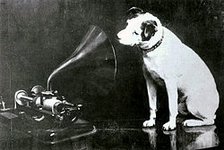Ambrose
¥
Διαβάζω σήμερα διάφορα για τον Brave New World του Aldous Huxley και ψάχνοντας στο διαδίκτυο πετυχαίνω και κάποιες μεταφράσεις του τίτλου:
1. Θαυμαστός νέος κόσμος
2. Θαυμαστός καινούργιος κόσμος
3. Θαυμαστός καινούριος κόσμος
4. Άξιος νέος κόσμος
5. Γενναίος νέος κόσμος
Ο πρωτότυπος τίτλος είναι αναφορά στην Τρικυμία του Σαίξπηρ και χρησιμοποιείται με αυτή εδώ την έννοια:
brave
adj. brav·er, brav·est
2. Making a fine display; impressive or showy: "a coat of brave red lipstick on a mouth so wrinkled that it didn't even have a clear outline" (Anne Tyler).
3. Excellent; great: "The Romans were like brothers/In the brave days of old" (Thomas Macaulay).
Αντιγράφω από την Wikipedia:
Brave New World's ironic title derives from Miranda's speech in Shakespeare's The Tempest, Act V, Scene I:[2] O wonder! How many goodly creatures are there here! How beauteous mankind is! O brave new world! That has such people in't!
This line is word-by-word quoted in the novel by John the Savage, when he first sees Lenina.
[...]
Translations of the novel into other languages often allude to similar expressions used in domestic works of literature in an attempt to capture the same irony: the French edition of the work is entitled Le Meilleur des mondes (The Best of All Worlds), an allusion to an expression used by the philosopher Gottfried Leibniz[4] and satirized in Candide, Ou l'Optimisme by Voltaire (1759). The German title of the book is Schöne Neue Welt (Beautiful New World). First the word "brave" was translated to "Tapfer", which is the correct modern translation of "brave." Translators later recognized that, at Shakespeare's time, "brave" meant "beautiful" or "good looking".
1. Θαυμαστός νέος κόσμος
2. Θαυμαστός καινούργιος κόσμος
3. Θαυμαστός καινούριος κόσμος
4. Άξιος νέος κόσμος
5. Γενναίος νέος κόσμος
Ο πρωτότυπος τίτλος είναι αναφορά στην Τρικυμία του Σαίξπηρ και χρησιμοποιείται με αυτή εδώ την έννοια:
brave
adj. brav·er, brav·est
2. Making a fine display; impressive or showy: "a coat of brave red lipstick on a mouth so wrinkled that it didn't even have a clear outline" (Anne Tyler).
3. Excellent; great: "The Romans were like brothers/In the brave days of old" (Thomas Macaulay).
Αντιγράφω από την Wikipedia:
Brave New World's ironic title derives from Miranda's speech in Shakespeare's The Tempest, Act V, Scene I:[2] O wonder! How many goodly creatures are there here! How beauteous mankind is! O brave new world! That has such people in't!
This line is word-by-word quoted in the novel by John the Savage, when he first sees Lenina.
[...]
Translations of the novel into other languages often allude to similar expressions used in domestic works of literature in an attempt to capture the same irony: the French edition of the work is entitled Le Meilleur des mondes (The Best of All Worlds), an allusion to an expression used by the philosopher Gottfried Leibniz[4] and satirized in Candide, Ou l'Optimisme by Voltaire (1759). The German title of the book is Schöne Neue Welt (Beautiful New World). First the word "brave" was translated to "Tapfer", which is the correct modern translation of "brave." Translators later recognized that, at Shakespeare's time, "brave" meant "beautiful" or "good looking".
Last edited by a moderator:




